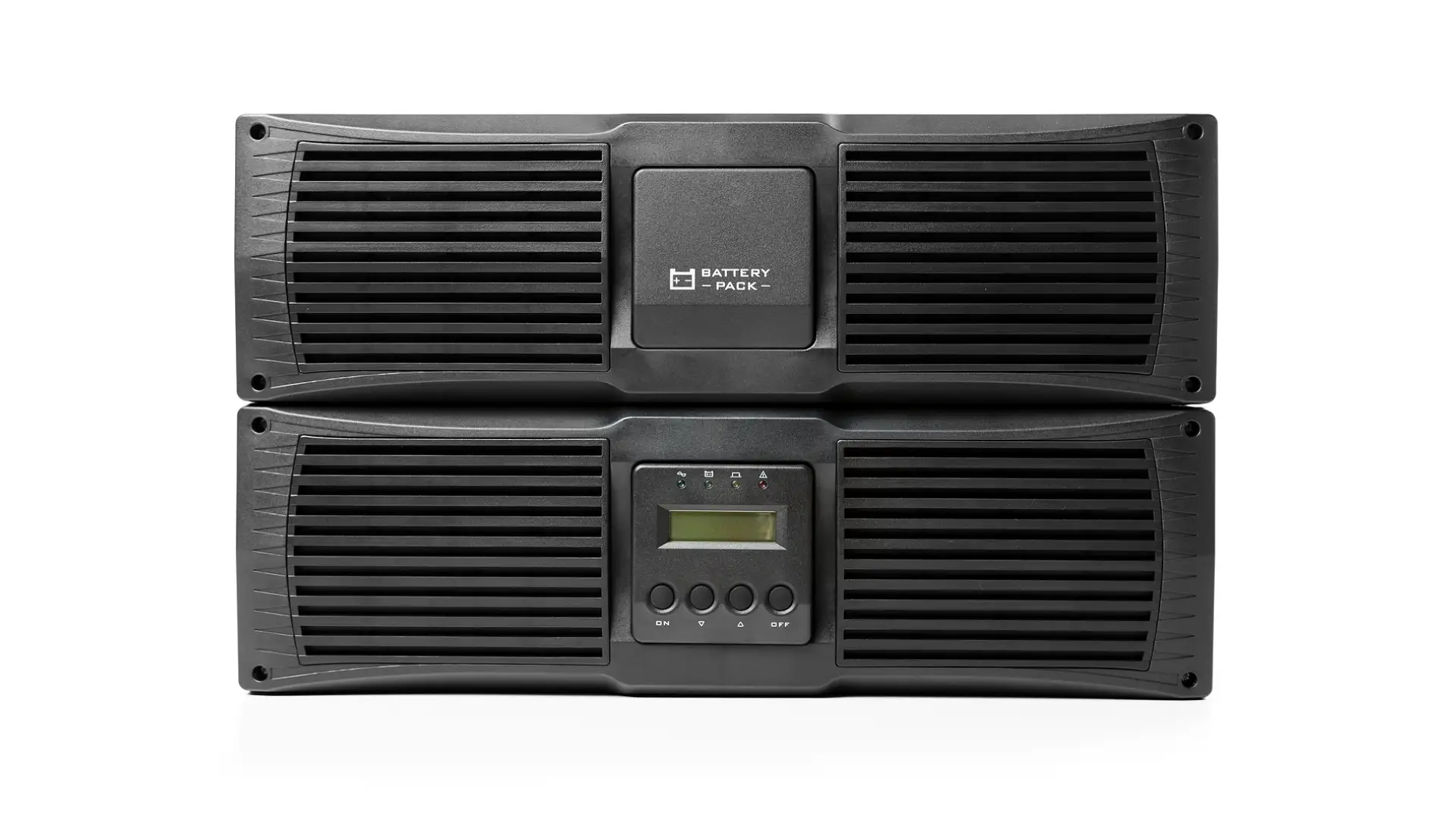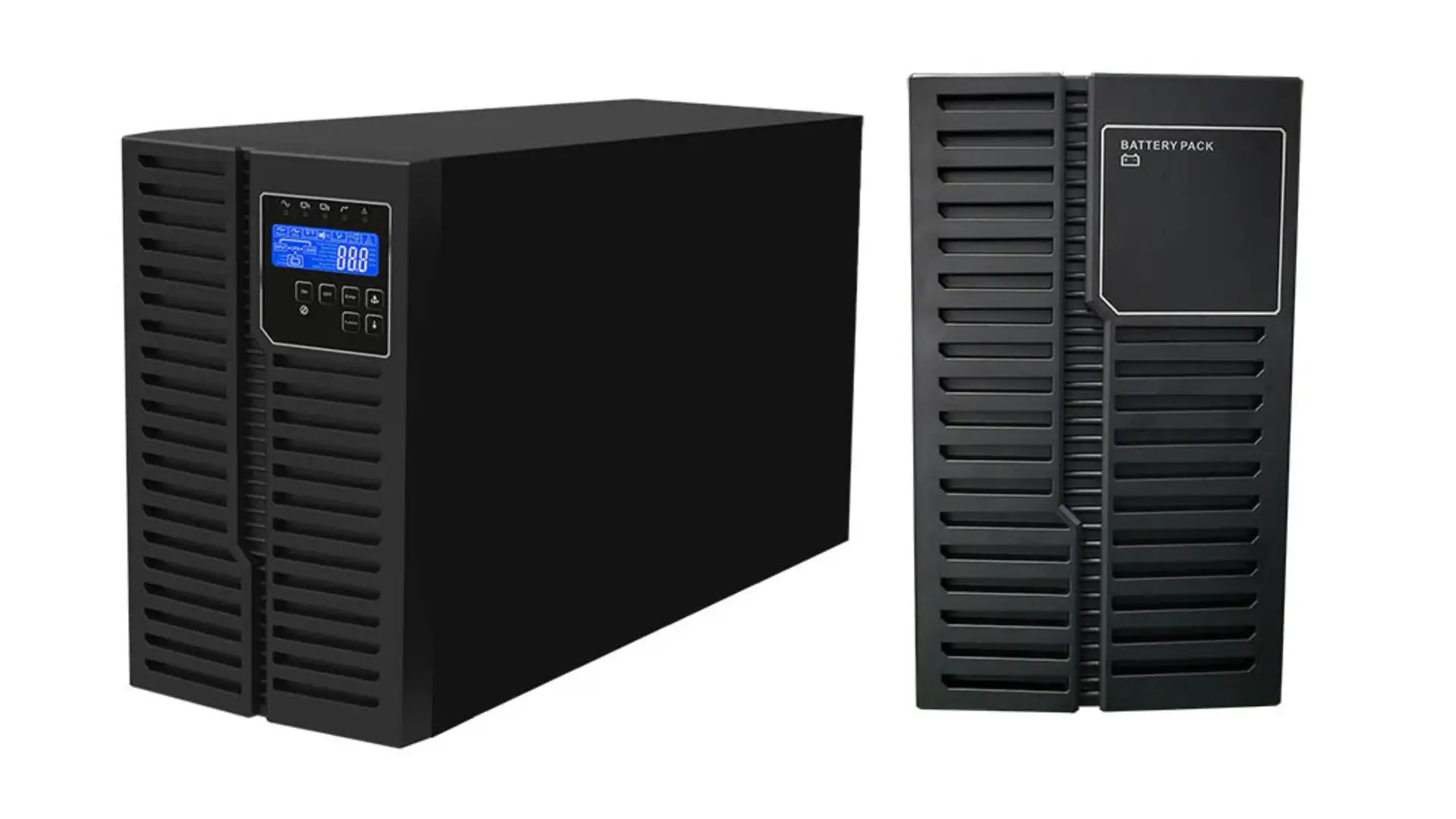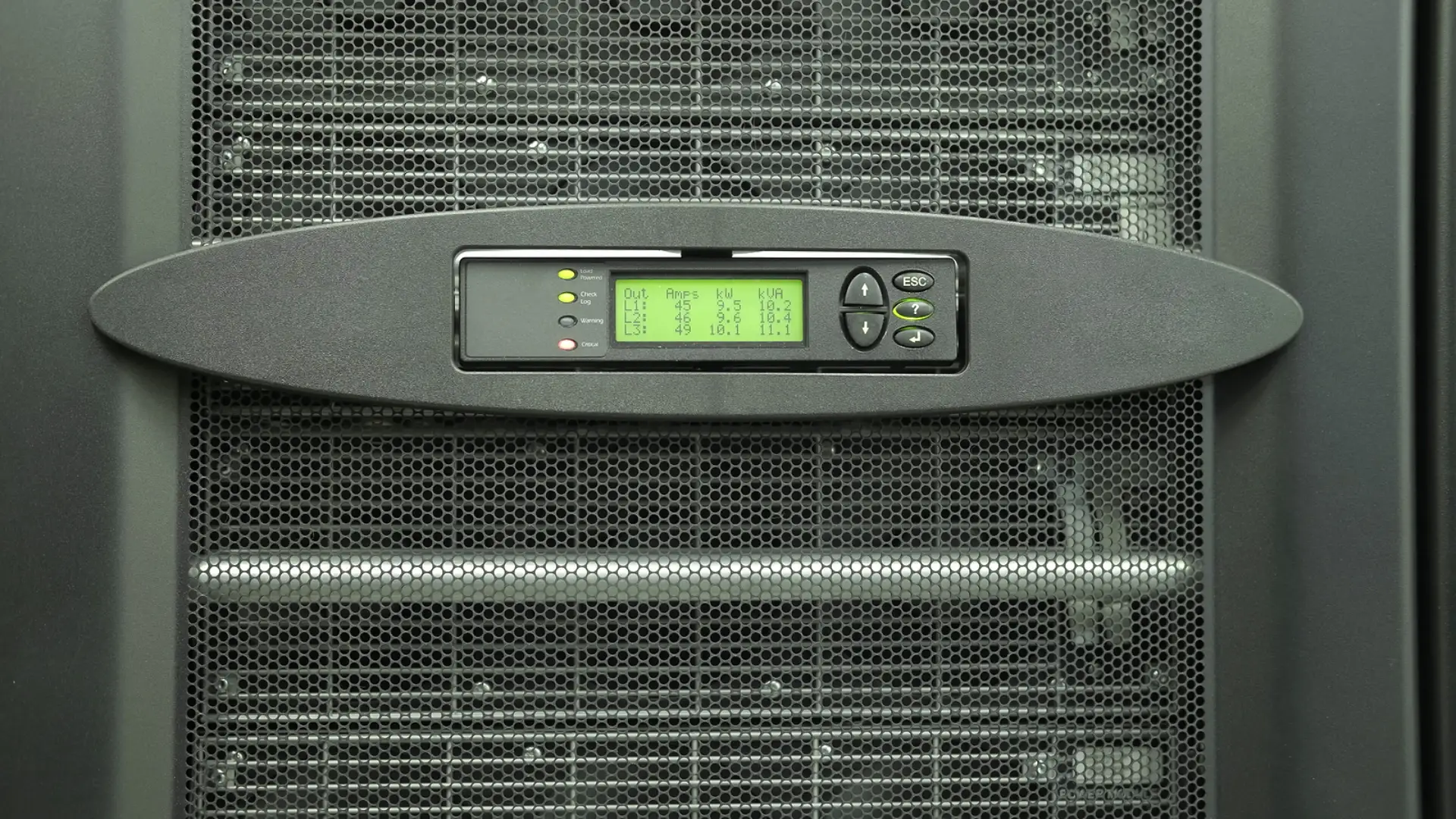
24v UPS Battery Backup
In today's digitally-driven world, uninterrupted power supply is essential for both businesses and individuals. A sudden power outage can lead to data loss, disruption of critical operations, and inconvenience. To combat these issues, a 24V Uninterruptible Power Supply (UPS) battery backup system can be a game-changer. In this comprehensive guide, we will delve deep into the world of 24V UPS battery backups, exploring their benefits, installation, maintenance, and more. Whether you're a tech enthusiast or a business owner, this pillar content will equip you with the knowledge to make an informed decision about using a 24V UPS battery backup.
Understanding the Basics of a 24V UPS Battery Backup
A UPS (Uninterruptible Power Supply) battery backup is a critical electrical device designed to safeguard your equipment against power outages and voltage fluctuations. It serves as a vital link between your main power source and your electrical devices, ensuring a seamless transition of power supply during adverse conditions.
The Importance of 24V
The voltage rating of a UPS battery backup is a crucial factor to consider when selecting the right device for your needs. A 24V UPS system is a widely favored choice due to its versatility in handling both residential and commercial power requirements. It strikes a balance between power capacity and compatibility, making it a reliable option for a variety of applications.
Diverse Types of 24V UPS Battery Backups
Within the realm of 24V UPS battery backups, there exist two primary types, each tailored to specific needs:
- Standby UPS (Offline UPS):
- Also referred to as Offline UPS, this type of backup system remains in a passive state until a power interruption occurs.
- When a power outage or voltage fluctuation is detected, it swiftly switches to battery power, providing instantaneous protection for your connected devices.
- Standby UPS units are well-suited for basic applications and are cost-effective solutions for ensuring uninterrupted power supply in less critical scenarios.
- Online UPS:
- An Online UPS operates differently from its standby counterpart. It continuously powers your equipment from its internal inverter, which remains active at all times.
- This continuous power supply offers superior protection against a wider range of power anomalies, making it an ideal choice for critical systems and sensitive electronics.
- However, the enhanced protection comes at a higher cost compared to standby UPS systems.

The Benefits of Using a 24V UPS Battery Backup
When considering the implementation of a 24V UPS battery backup system, it's important to recognize the multifaceted benefits it offers, encompassing both hardware and environmental considerations.
Reliable Power Protection
A 24V UPS battery backup system provides a steadfast guarantee of uninterrupted power supply. Whether faced with a momentary power flicker or an extended outage, this system ensures that your critical equipment remains operational. This not only safeguards against data loss but also protects your systems from potential damage caused by abrupt power interruptions.
Safeguarding Your Data
In the digital era, data is often considered an organization's most valuable asset. A sudden power outage can result in data corruption or loss. A UPS system allows you to securely save your work and perform controlled shutdowns, safeguarding your data from unexpected power disruptions.
Minimizing Downtime
Downtime can be financially detrimental for businesses, leading to reduced productivity and potential customer dissatisfaction. By deploying a UPS system, your operations can continue seamlessly during power outages, thereby minimizing downtime and its associated costs.
Extending Equipment Lifespan
Electronic equipment is susceptible to damage from frequent power fluctuations. A 24V UPS battery backup system provides a stable power source, which in turn extends the lifespan of your devices. This not only reduces the need for costly repairs or replacements but also promotes sustainability by conserving resources.
Environmental Benefits
Beyond its immediate advantages for your equipment, using a 24V UPS battery backup system also benefits the environment. By reducing the frequency of electronic device replacements, you contribute to a reduction in electronic waste. Additionally, the system's ability to maintain stable power helps lower overall energy consumption, further supporting eco-conscious practices.
Choosing the Right 24V UPS Battery Backup
When it comes to choosing the right 24V UPS (Uninterruptible Power Supply) battery backup system, there are several crucial factors to consider to ensure you make an informed decision. Below, we delve into these considerations to help you select the best UPS for your specific needs.
- Assessing Your Power Needs: To begin your journey towards selecting the right UPS, it's essential to have a clear understanding of your power requirements. Start by calculating the total power load of the equipment you intend to protect. This includes all connected devices such as computers, servers, networking equipment, and other critical electronics. The UPS you choose should have a power rating that comfortably exceeds this total load to ensure it can handle unexpected power interruptions without issues.
- Budget Considerations: UPS systems come in a wide range of prices, depending on their features and capacity. It's crucial to strike a balance between your budget and your power protection needs. While it may be tempting to opt for a cheaper option, investing in a reliable UPS is a cost-effective strategy in the long run. Consider it as insurance for your critical equipment against power disturbances.
- Selecting the Right Form Factor: UPS systems are available in various form factors, such as tower, rack-mounted, and wall-mounted units. The choice of form factor should align with your available space and installation requirements. For instance, if you have limited floor space, a rack-mounted UPS might be the ideal solution. Take into account your physical setup when making this decision.
- Online vs. Offline (Standby) UPS: The level of power protection you require is a critical consideration. Standby UPS systems are suitable for many applications and are cost-effective. However, if your equipment's uptime is of utmost importance and you cannot afford any interruptions, an online UPS is a superior choice. Online UPS units provide continuous power protection by constantly routing power through the battery, ensuring seamless operation during power fluctuations or outages.
- Runtime and Scalability: How long your equipment needs to run on battery power during an outage is another critical factor. UPS systems offer various runtime options, ranging from minutes to several hours, depending on the battery capacity and load. It's essential to evaluate your specific needs and select a UPS with an adequate runtime to support your equipment until power is restored. Some UPS units are also expandable with additional battery packs, providing scalability for longer backup times if required.
Installing Your 24V UPS Battery Backup
When it comes to ensuring the reliable performance of your 24V UPS (Uninterruptible Power Supply) battery backup, proper installation is key. Below, we provide a detailed guide on how to install your UPS to maximize its effectiveness and protect your critical equipment.
Location and Placement
The first step in installing your UPS is selecting an appropriate location. Choose a stable surface that can support the weight of the UPS unit and ensure it's well-ventilated. Overheating can be detrimental to UPS performance, so make sure there's ample airflow around the unit. Additionally, position the UPS within reach of the equipment you want to protect, as this will make cable management and connection easier.
Connecting Your Equipment
Properly connecting your devices to the UPS is crucial for effective power protection. Use the provided outlets on the UPS to connect your equipment, such as computers, servers, networking gear, and other electronics. Pay close attention to load distribution to avoid overloading the UPS. Most UPS units have both battery-backed and surge-only outlets, so be sure to differentiate between them to prioritize essential equipment for battery backup.
Proper Grounding
Ensuring your UPS is properly grounded is essential for safety and optimal performance. Use a grounded electrical outlet for your UPS. If you are unsure about the grounding of the outlet or need assistance with proper installation, consult an electrician to ensure that the grounding is correctly established.
Testing the UPS
After the physical installation, it's crucial to perform a test to confirm that the UPS functions as expected. To do this, simulate a power outage by disconnecting the UPS from the utility power source or using the UPS's built-in test function. Verify that your connected equipment seamlessly switches to battery power without any interruptions or issues. Testing your UPS periodically is also recommended to ensure its continued reliability.
Software Setup and Monitoring
Many modern UPS systems come equipped with monitoring software that enhances your control and visibility over power events and the health of the UPS battery. Install and configure this software on your connected devices, such as a computer or server. With this software, you can monitor the UPS's status, receive alerts in real-time, and even remotely shut down devices during extended power outages to conserve battery power and protect your equipment.
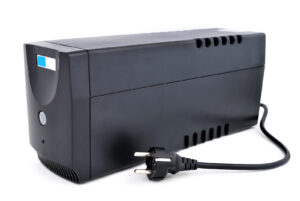
Maintaining Your 24V UPS Battery Backup
Ensuring the long-term reliability of your 24V UPS (Uninterruptible Power Supply) battery backup system involves a series of essential maintenance tasks and proactive measures. In this guide, we provide detailed information on how to maintain and optimize the performance of your UPS.
- Battery Replacement: UPS batteries are not immune to wear and have a limited lifespan. To maintain the effectiveness of your UPS, it's crucial to monitor battery health regularly. Plan to replace the batteries when they approach the end of their life cycle, which typically occurs every 3 to 5 years. Outdated batteries can lead to decreased backup runtime and unreliable power protection.
- Regular Testing and Calibration: Periodic testing of your UPS is essential to ensure it functions correctly when needed. Follow the manufacturer's guidelines for routine testing procedures. If your UPS allows for calibration, make sure to perform this process as required. Calibration helps maintain the UPS's accuracy and ensures it can provide the expected level of protection during power disturbances.
- Monitoring and Alerts: Take advantage of the monitoring capabilities offered by your UPS system. Set up monitoring alerts to receive notifications about any issues that may arise, such as low battery levels, overheating, or abnormal operating conditions. Proactive monitoring allows you to address potential problems before they escalate, helping to safeguard your critical equipment.
- Keeping the UPS Clean and Dust-Free: Dust and debris accumulation can adversely affect the cooling system of your UPS, potentially leading to overheating and reduced performance. Periodically clean the UPS to prevent dust buildup. Pay close attention to air vents, fans, and internal components. Maintaining a dust-free environment around the UPS also contributes to its longevity and reliability.
- Emergency Procedures: It's essential to have a well-defined plan for dealing with power outages and other emergencies. Develop clear emergency shutdown procedures to gracefully power down your connected equipment when extended power outages occur. Ensure that your UPS is integrated into your emergency power restoration strategy, whether through backup generators or alternative power sources.
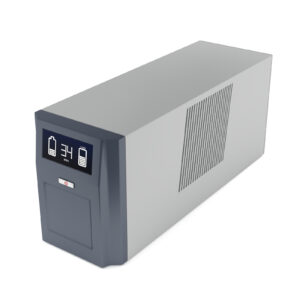
Troubleshooting Common Issues
To ensure the uninterrupted protection of your critical equipment, it's essential to be well-informed about common issues that can affect your 24V UPS (Uninterruptible Power Supply) battery backup system. In this guide, we provide detailed information on troubleshooting these issues and taking proactive measures to resolve them.
Overloading
Overloading your UPS can lead to its shutdown or damage to the connected devices. It's crucial to verify that your equipment load remains within the UPS's rated capacity. If you plan to add more devices to your setup, consider upgrading to a UPS with a higher capacity to accommodate the increased load. Regularly check and rebalance your connected equipment to prevent overloading.
Battery Aging
UPS batteries have a finite lifespan, and as they age, their capacity diminishes. To ensure that your UPS can provide adequate backup power when needed, keep an eye on the battery's age and performance. Plan for battery replacements as batteries approach the end of their life cycle, typically every 3-5 years. Replacing aging batteries is essential to maintain the UPS's ability to support your equipment during power outages.
Alarm Notifications
Your UPS is equipped with alarm notifications that can alert you to various issues, including low battery levels, overload conditions, and system faults. Pay close attention to these notifications, as they provide crucial information about the UPS's status. Promptly address any alarms by taking the necessary corrective actions or seeking professional assistance when needed. Ignoring alarms can lead to potential disruptions and equipment damage.
Voltage Regulation Problems
If your UPS fails to regulate voltage properly, it may not effectively protect your connected equipment from voltage fluctuations and spikes. Improper voltage regulation can expose your devices to potential harm. If you suspect voltage regulation issues with your UPS, consult a professional technician who can diagnose and resolve the problem. Regular maintenance and calibration may also help ensure that the UPS functions optimally.
Compatibility Issues
Compatibility between your UPS and the devices you intend to protect is vital. Some equipment may have specific requirements for UPS models or configurations to ensure seamless operation and optimal protection. Before connecting devices to your UPS, verify their compatibility with the UPS unit you have. Consult equipment manuals or manufacturers' guidelines to ensure a harmonious and effective setup.
FAQs
Q1: How many hours is UPS battery backup?
A1: The duration of UPS battery backup varies depending on the capacity of the UPS unit and the power load it is supporting. Generally, UPS units are designed to provide backup power for a few minutes to several hours. You can check the specifications of your specific UPS model to determine its battery backup runtime.
Q2: How long will a 1500VA UPS run?
A2: The runtime of a 1500VA (Volt-Ampere) UPS depends on factors such as the efficiency of the UPS, the load it is supporting, and the capacity of its battery. On average, a 1500VA UPS may provide backup power for around 10 to 30 minutes at full load. However, it can run for a longer duration if the load is lower.
Q3: How much backup does UPS give?
A3: The amount of backup power provided by a UPS depends on its VA rating, battery capacity, and the power load it is supporting. UPS units typically offer backup power ranging from a few minutes to several hours. You can find the specific runtime information in the UPS's specifications.
Q4: What battery is best for UPS backup?
A4: The best battery for UPS backup is typically a sealed lead-acid (SLA) battery or a lithium-ion battery designed for UPS applications. The choice depends on your specific UPS model and requirements. It's essential to use a battery recommended or compatible with your UPS to ensure proper functionality and longevity.
Q5: Which UPS gives 6 hours backup?
A5: UPS units that provide 6 hours of backup power are typically larger and have higher VA ratings. You can find UPS models with longer backup times by checking the product specifications or consulting with UPS manufacturers or suppliers.
Q6: Can I put a stronger battery in my UPS?
A6: It is generally not recommended to install a battery with a significantly higher capacity than what is specified for your UPS. Using a battery with a different capacity can affect the UPS's performance and may even damage it. It's best to use the battery type and capacity recommended by the UPS manufacturer.
Q7: How do you calculate battery size for UPS?
A7: To calculate the battery size for a UPS, you need to consider the power load (in watts) you want to support and the desired runtime (in minutes). Use the formula: Battery Size (in ampere-hours) = (Load in watts × Runtime in hours) / UPS Voltage. Ensure the battery voltage matches your UPS requirements.
Q8: Can I use a car battery for UPS?
A8: While it is technically possible to use a car battery for a UPS, it is not recommended. Car batteries are designed for different purposes and may not provide the necessary performance and durability for uninterrupted power supply. It's better to use batteries specifically designed for UPS applications.
Q9: How do I calculate what size UPS I need?
A9: To calculate the size of the UPS you need, determine the total power load (in watts) of the devices you want to connect to the UPS. Consider any additional devices you may want to add in the future. Choose a UPS with a VA rating greater than or equal to the load's watts. Factor in the desired runtime and any other specific requirements, such as surge protection or voltage regulation, when selecting a UPS.
Conclusion: A Powerhouse in a Box
continue reading
Related Posts
Uninterrupted Power Supply for Sale In today’s digital age, where […]
Uninterruptible Power Supply 240V In today’s technology-driven world, maintaining a […]
Uninterruptible Power Supply for Business In today's digital and interconnected […]
